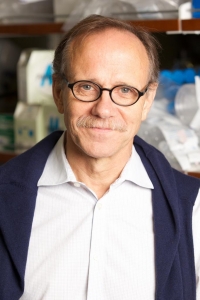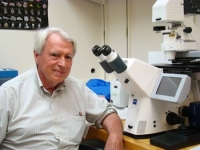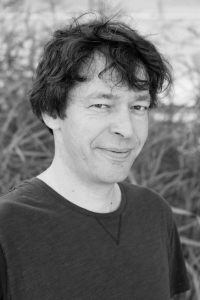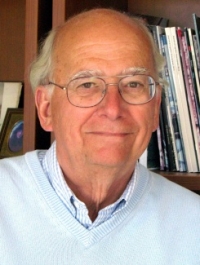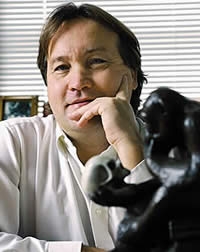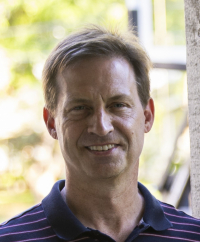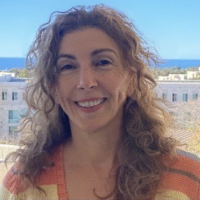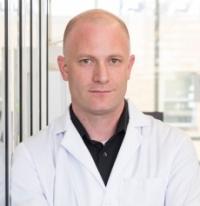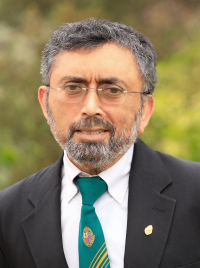Uniquely Human Features of the Brain
Biographical Sketches: Co-Chairs
Salk Institute for Biological Studies
Fred H. Gage is a Professor in the Laboratory of Genetics and the past President (2018-2023) of the Salk Institute. He is an Adjunct Professor at UC San Diego, and emeritus Co-Director of CARTA. Dr. Gage concentrates on the adult central nervous system and unexpected plasticity and adaptability to environmental stimulation that remains throughout the life of all mammals. His work may lead to methods of replacing or enhancing brain and spinal cord tissues lost or damaged due to Neurodegenerative disease or trauma. Gage's lab showed that, contrary to accepted dogma, human beings are capable of growing new nerve cells throughout life. Small populations of immature nerve cells are found in the adult mammalian brain, a process called Neurogenesis. He is working to understand how these cells can be induced to become mature functioning nerve cells in the adult brain and spinal cord. They showed that environmental enrichment and physical exercise can enhance the growth of new brain cells and they are studying the underlying cellular and molecular mechanisms that may be harnessed to repair the aged and damaged brain and spinal cord. Gage is a member of the National Academy of Science and the Institute of Medicine.
Emory University School of Medicine, Yerkes Primate Research Center
Todd Preuss is a biological anthropologist and neuroscientist. He is Professor Emeritus of Pathology, Emory University School of Medicine and the Division of Neuropharmacology and Neurologic Diseases at the Emory National Primate Research Center. His research has focused on the organization and evolution of primate cerebral cortex, particularly visual and frontal cortex, and he has authored a series of papers exploring the application of modern phylogenetic concepts and methods to problems of brain evolution. Recently, his research has concentrated on identifying evolutionary specializations of cerebral cortex, using information derived from genomics studies to guide histological and anatomical investigations, and comparative neuroimaging studies of humans, chimpanzees, and other nonhuman primates.
Biographical Sketches: Speakers
California Institute of Technology
John Allman is the Frank P. Hixon Professor of Neurobiology, California Institute of Technology. Evolution of the brain and behavior in primates. The anatomy and physiology of the visual system in primates. The role of frontoinsular and anterior cingulate cortex in emotion and cognition. Functional magnetic resonance imaging of economic decision-making. Recent book: Evolving Brains, Scientific American Library/WH Freeman, 2000.
Ludwig Maximilian University of Munich
Wolfgang Enard is professor for anthropology and human genomics at the Ludwig-Maximilians University in Munich, Germany. Until 2012 he was in the group of Svante Pääbo at the MPI in Leipzig on genetic differences between humans and apes. He worked on comparing gene expression patterns between humans and chimpanzees, was part of the international chimpanzee sequencing consortium and studied the evolution of FOXP2, a gene involved in speech and language development. Currently he is mainly focusing on generating and using primate iPS cells in combination with scRNA-seq to decipher the evolution of molecular circuitries.
UC San Diego
Pascal Gagneux is CARTA's Executive Co-Director, a Professor of Pathology and Anthropology, and the Department Chair of Anthropology at UC San Diego. He is interested in the evolutionary mechanisms responsible for generating and maintaining primate molecular diversity. The Gagneux laboratory studies cell-surface molecules in closely related primates species. His focus is on glycans, the oligosaccharides attached to glycolipids and glycoproteins of the surfaces of every cell and also secreted into the extra-cellular matrix. Gagneux's laboratory is exploring the roles of molecular diversity in protecting populations from pathogens as well as potential consequences for reproductive compatibility. Dr. Gagneux’s interest is in how glycan evolution is shaped by constraints from endogenous biochemistry and exogenous, pathogen-mediated natural selection, but could also have consequences for sexual selection. Dr. Gagneux has studied the behavioral ecology of wild chimpanzees in the Taï Forest, Ivory Coast, population genetics of West African chimpanzees, and differences in sialic acid biology between humans and great apes with special consideration of their differing pathogen regimes. In 2011, while Associate Director of CARTA, Dr. Gagneux helped to establish a graduate specialization in Anthropogeny at UC San Diego. This wholly unique graduate specialization is offered through eight participating graduate programs in the social and natural sciences at UC San Diego.
UC Santa Barbara
Michael Gazzaniga is the Director of the Sage Center for the study of Mind at the University of California, Santa Barbara. He received a Ph.D from the California Institute of Technology, where he worked with Roger Sperry, and had primary responsibility for initiating human split-brain research. He has established Centers for Cognitive Neuroscience at Cornell Medical School, the University of California-Davis and at Dartmouth. He is the founding editor of the Cognitive Neuroscience Institute and the Journal of Cognitive Neuroscience. He was a member of the President's Council on Bioethics from 2001-2009. He is a member of the American Academy of Arts and Science, the Institute of Medicine and the National Academy of Sciences. His new book is based on his Gifford Lectures-- Who’s in Charge? Free Will and the science of the brain.
The University of Texas MD Anderson Cancer Center
William D. Hopkins is professor of psychology at Agnes Scott College and a research scientist at the Yerkes National Primate Research Center. His research focuses on the evolution of hemispheric specialization in relation to higher order cognition, including language. He has also conducted numerous studies on the evolution of population-level handedness in primates and the role of genetic and non-genetic factors on their development. Hopkins received his bachelor's degree in 1983 from the University of Wisconsin and his master's (1986) and Ph.D. from Georgia State University (1990).
Emory University
James K. Rilling is a Professor of Psychology at Emory University, with a secondary appointment in the Department of Psychiatry and Behavioral Sciences. Dr. Rilling uses brain imaging, genetics and endocrine assays to investigate the biological bases of human social cognition and behavior, with a current focus on caregiving in fathers, grandmothers and dementia caregivers. Much of his research is examining the role of oxytocin signaling in human social cognition and behavior. His latest book is Father Nature: The Science of Paternal Potential (The MIT Press, 2024)
UC San Diego
Katerina Semendeferi is Professor of Anthropology and Director of the Laboratory for Human Comparative Neuroanatomy at UC San Diego. She is CARTA Co-Director and elected fellow of the American Association for the Advancement of Science. Semendeferi’s studies of the fronto-limbic circuitry showed that the relative size of the frontal cortex is remarkably similar across apes and humans and that evolutionary changes are found in some, but not all, regions of the human frontal lobe and amygdala. Her laboratory explores links between the phylogenetically reorganized brain regions and vulnerabilities observed in atypical human neurodevelopment (Autism and Williams Syndrome). Semendeferi has been involved with multiple lines of research in human evolution, including the fossil record, and pioneered the application of noninvasive imaging tools to the study of the brain of the apes. She maintains an interest in bringing together multiple fields of inquiry including efforts to bridge classical quantitative neuroanatomy with the field of induced pluripotent stem cells and brain organoids.
The George Washington University
Dr. Sherwood is a biological anthropologist interested in brain evolution and its behavioral correlates in primates and other mammals. Dr. Sherwood's comparative neuroanatomical research has focused on issues related to allometric scaling at macro- and microanatomical levels, brain asymmetry and behavioral lateralization, evolutionary changes in human language area homologues, the anatomical basis of phylogenetic differences in orofacial motor capacities, and neurochemical substrates of cognitive differences among primate species.
UC San Diego School of Medicine
Ajit Varki is a Distinguished Professor of Medicine and Cellular & Molecular Medicine, Emeritus Co-Director of CARTA, Emeritus Co-Director of the Glycobiology Research and Training Center at UC San Diego, and Adjunct Professor at the Salk Institute. He received basic training in physiology, medicine, biology, and biochemistry at the Christian Medical College (CMC), Vellore, The University of Nebraska, and Washington University in St. Louis. He also has formal training and board certification in internal medicine, hematology, and oncology. Varki is the executive editor of Essentials of Glycobiology (Cold Spring Harbor Press, 4th Edition, 2022) and is recipient of a MERIT award from the NIH, and an American Cancer Society Faculty Research Award. Honorific elections include the American Academy of Arts and Sciences, the National Academy of Medicine, the American Society for Clinical Investigation, and the Association of American Physicians. He is also recipient of the three highest honors in his field, the Karl Meyer Award of the Society for Glycobiology, the International Glycoconjugate Organization Award and the Rosalind Kornfeld Award for Lifetime Achievement in Glycobiology. He is recognized for creating the first major open access research journal (J. Clin. Invest., 1996) as well as the first major open access textbook (Essentials of Glycobiology, 2009). He was honored with the Old Cottonian of Eminence Award at the 150th Anniversary of Bishop Cotton Boys School, Bangalore, India, (2015) as well as a Distinguished Faculty Medal and Oration at his medical school alma mater, CMC, Vellore. Significant past appointments include: Co-Head, UC San Diego Division of Hematology-Oncology; President of the Society for Glycobiology; Editor-in-Chief of the Journal of Clinical Investigation; Interim Director of the UC San Diego Cancer Center, President of the American Society for Clinical Investigation, and UC San Diego Associate Dean for Physician-Scientist Training. Varki's research interests are focused on a family of cell surface sugars called sialic acids, and their roles in biology, evolution and disease. Currently, active projects are relevant to the roles of sialic acids in microbial infectivity, the regulation of the immune response, the progression and spread of tumors, aging, and unique aspects of human evolution. His group is particularly intrigued to find multiple interrelated differences in sialic acid biology between humans and our closest evolutionary cousins, the "great apes." These differences are a signature of the events that occurred during the last few million years of human evolution, and appear to be relevant to understanding several aspects of the current human condition, both in health and disease. Varki’s book, Denial (Twelve, Hachette Books, 2013), explores a novel "Mind Over Reality Transition” (MORT) theory that denying reality and personal mortality was a key step in allowing the emergence of a full theory of mind, and in the origin of our species.
